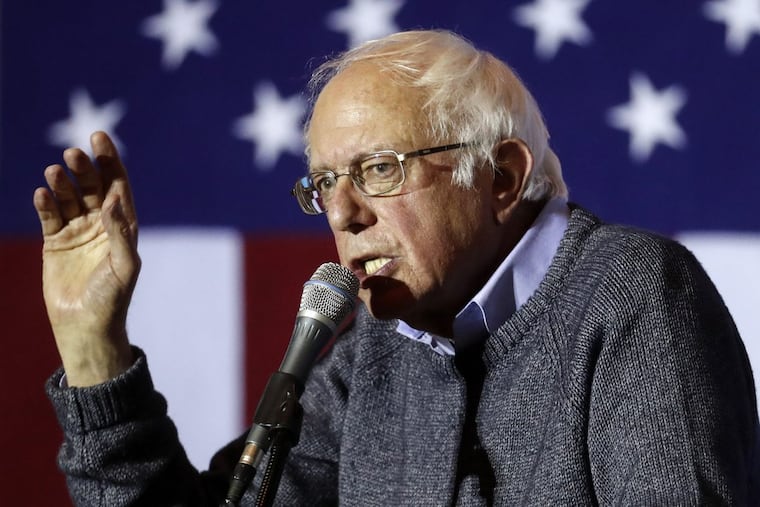Bernie Sanders' outcry over Koch investments: Another example of the left trying to silence both sides | Opinion
If Sanders and his ilk are successful, the power to silence the people will fall to both left- and right-wing politicians. Before long, it won't matter whether you speak from the left or from the right, because you won't be allowed to speak at all.

Last week the Koch network, a loosely organized collection of politically concerned individuals and groups headed by Charles Koch, announced that it planned to invest some $400 million in promoting various policy objectives ahead of the 2018 midterm elections. The outcry, from all the usual suspects, was both immediate and predictable. Bernie Sanders got straight to the heart of the American left's disdain of all things Koch within the confines of Twitter's 280-character limit, writing: "This is what oligarchy is all about. This is why we need to overturn the terrible Citizens United Supreme Court decision and move to public funding of elections."
But before you dust off your fainting couch, there are a few things to consider.
Sen. Sanders thinks that taxing the American people to pay for political campaigns is the answer to the "problem" of Citizens United v. FEC. In that 2010 case, the Supreme Court ruled that the First Amendment prohibits the government from restricting the communications spending of corporations (both non- and for-profit), labor unions, and other associations. In short, the government may not control "corporate" campaign spending for the same reason that it may not control the speech of individuals: because the government has no right and no business limiting political speech. While "corporations" are not people, people do not check their rights at the door when they join together. The right to free speech applies whether people speak individually or collectively.
Bernie Sanders himself is the perfect illustration of why the government cannot, and should not, be trusted to decide which political messages are legitimate and which are to be circumscribed. The senator from Vermont does his level best to demonize the "Koch Brothers," at every turn, but he curiously has little to say about much bigger money donors with whom he has more in common. According to OpenSecrets.org, the largest political donor in the 2016 election cycle was Thomas Steyer, who gave more than $90 million — every dollar of it to Democrats and left-wing causes. In total, the top 100 individual contributors gave almost $1 billion to political causes and campaigns in 2016. Where were the Koch brothers on the list? David Koch didn't give enough to appear, and Charles Koch came in at No. 55 with $4 million in donations. Together, the 54 donors ahead of him donated almost 190 times as much. Are donors 1 through 54 somehow less problematic? And should Bernie Sanders, or any other politician for that matter, be the one who decides which donors are problematic?
And what of the organizations that were enabled by the Citizens United decision? The top 50 such contributors gave over $1 billion — 60 percent to Democrats and liberal causes, 40 percent to Republicans and conservative causes. The difference here is labor unions. In 2016, the top 20 labor unions gave a total of $180 million to politicians and political causes — 98 percent went to Democrats, 2 percent to Republicans. Will Sen. Sanders speak to the ill effects of all this union money in our politics? Don't hold your breath.
Putting aside who gave what and to whom, the total amount Americans spend on candidates and issues is, in the great scheme of things, paltry. In the 2016 cycle, Democratic and Republican candidates and their surrogates spent over $6 billion on campaigns. In the same year, Americans spent $70 billion on lottery tickets, almost $40 billion on beer, and $7 billion celebrating the 4th of July. As a nation, we actually spend more money celebrating our democracy than we do participating in it.
Those who applaud Sen. Sanders' attempts to stifle speech, take heed. As is always the case in matters of free speech, defending the kind of speech one doesn't like is the most important thing one can do to ensure the long-term health of the republic. If Sanders and his ilk are successful, the power to silence the people will fall to both left- and right-wing politicians. Before long, it won't matter whether you speak from the left or from the right, because you won't be allowed to speak at all.
Antony Davies is associate professor of economics at Duquesne University in Pittsburgh. James R. Harrigan is CEO of FreedomTrust. They host the weekly podcast Words & Numbers.